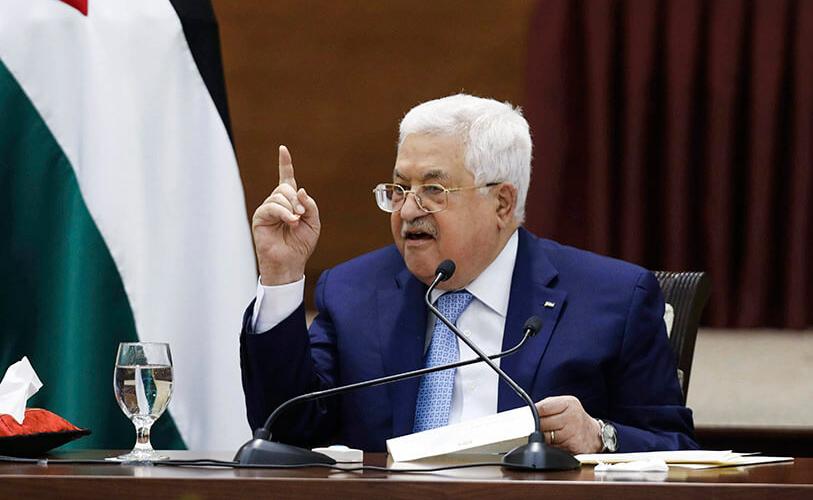For Palestinians, the truth is not enough
https://arab.news/9qhts

It is not enough for the Palestinians to break all ties with Israel and “suspend” the agreements signed under the terms of the Oslo Accords, as President Mahmoud Abbas did last week. Abbas is justifiably angry with the actions of Israel’s government and the failure of the US to pursue a balanced approach to ending the conflict. In fact, Washington has taken numerous actions that have made it nearly impossible to restart the peace process or strengthen confidence in the only realistic goal for genuine peace: The two-state solution.
But, while the Palestinians are justified in rejecting the actions of Israel and the US — and are morally and legally right to do so — in the real world of diplomacy and building public support, they must do more than merely act like rejectionists without effectively explaining their actions. Even though justice, the rule of law and morality are all on their side, the Palestinians’ failure to present their case in a strategic and effective manner only reinforces Israel and the US, which are claiming they offered a genuine peace deal that was rejected.
Palestinians need to work harder to explain to the world why they have been forced to do what they have done and why rejecting the plan was the only legitimate option. That means doing something the Palestinians have not done in the 72 years since the Nakba: Thinking about what they say and how they say it. They need to develop a powerful message that appeals to the world, including the one audience that can check Israel’s conduct — the American public.
Since 1948, the Palestinians and the Arabs have shrugged off the significance of the American people, initially seeing the US as a partisan advocate of Israeli atrocities and later wrongly believing that the truth is more powerful than public relations. In fact, without effective communications and messaging, the truth is easily brushed aside.
Israel’s government brushes off the truth all the time. It engages in violence and oppression and yet convinces the world — including the most important audience in America — that it is the victim. Using effective communications and public relations strategies, the Israelis have convinced most American policymakers that they want peace and the Palestinians are intransigent, extremist and anti-peace.
The Israelis have convinced most American policymakers that they want peace and the Palestinians are intransigent, extremist and anti-peace.
Ray Hanania
What is Israel to do except build a 22-foot-tall wall? What can Israel do when it embraces peace but the Palestinian always say “no?” What can Israel do when the Palestinians break the Oslo Accords, even though the Tel Aviv government has abrogated most of the accords 10 times over without consequence? Palestinian leaders and activists need to wake up. Just because truth is on their side, that doesn’t mean they can overcome the Israeli leadership’s lies.
Perception, not truth, is the reality; but perception is malleable. It can be shifted through strategic and effective messaging — something the Palestinians, and especially the activists who support them, have never done. Instead, the Palestinians tend to fall back on the one card they seem to prefer (because it’s easier than hard work) and that continues to fail them: Emotion.
The Palestinian leadership and activists seem more concerned about protecting their image among their own people than doing the right thing. Emotion only leads to anger and frustration, which sometimes lead to violence; even impetuous, unplanned violence. This only undermines the just cause of the Palestinian people in the eyes of those who today control their future and make the decisions that impact Palestinian lives — the American people. The US public is very smart and can see through lies when the truth is presented in an effective and strategic way.
One particular aspect of this issue I have written about often is the failure of the Palestinians and the Arab world to target the Christians of the West, especially in America. Israel, on the other hand, recognizes their significance and so invests a lot to ensure that the Christians, from the mainstream to the evangelicals, are on their side when it comes to the Palestinian fight for justice.
However, the truth is that the relationship between Israel and some Christian Americans is not as cozy as one might expect. Only last week, Israel’s main cable TV provider threatened to shut down the Christian GOD TV channel because the station’s head publicly said that its aim is to “take the gospel of Jesus into the homes and lives and hearts of his Jewish people.” Not talking about that is the price Israel pays to maintain strong ties with the American evangelical Christian movement, which has a huge influence on most presidential administrations — and the Donald Trump White House in particular.
Meanwhile, the Palestinians’ habit of angrily denouncing America for being biased and Israel for its efforts to annex occupied lands is not effective. The Palestinians need to adopt a powerful public relations strategy and the Arab world needs to invest millions in that campaigning effort.
In the long run, forcing Israel to moderate and recognize and respect Palestinian rights is the only way to peace.
- Ray Hanania is an award-winning former Chicago City Hall political reporter and columnist. He can be reached on his personal website at www.Hanania.com. Twitter: @RayHanania









































